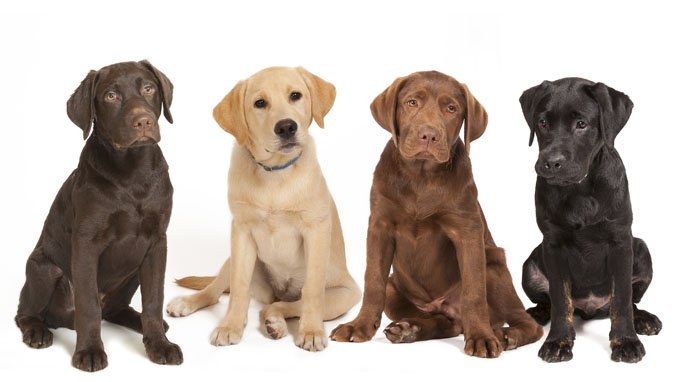Looking for a friendly, compact companion? The mini golden retriever might be just what you need. This smaller version of the beloved breed combines the charm and temperament of a full-sized retriever with a more manageable size, making it an ideal choice for families and individuals alike.
Also known as Golden Minis or Teacup Goldens, these dogs are selectively bred to maintain the personality and loyalty of their larger counterparts. Their smaller stature makes them well-suited for various living spaces, including apartments, without compromising their playful and affectionate nature.
Reputable breeders ensure these dogs are healthy and retain the best traits of the breed. Whether you’re an active family or someone with limited space, a mini golden retriever could be the perfect addition to your home.
Key Takeaways
- Mini golden retrievers are bred to be smaller while keeping the friendly nature of the breed.
- They are ideal for families and individuals living in smaller spaces like apartments.
- These dogs require regular exercise and grooming, similar to full-sized retrievers.
- Reputable breeders focus on health and temperament to ensure quality puppies.
- Their compact size makes them a great choice for urban living.
Understanding the Unique Traits of a Golden Retriever That Stays Small
Ever wondered how breeders create a smaller version of a beloved breed? The mini golden is a result of careful breeding and genetic selection. This section dives into what makes these dogs unique and why they’re gaining popularity.
Defining the Mini Golden Concept
A mini golden is not just a smaller version of a full-sized retriever. It’s a deliberate mix of breeds like the Cavalier King Charles Spaniel and Poodle. This crossbreeding ensures the temperament and personality of the retriever remain intact while reducing the size.

How Genetics Craft a Compact Companion
Genetics play a key role in shaping a mini golden. Breeders select parent dogs with desirable traits, such as a smaller size and a friendly demeanor. This process ensures the puppies inherit the best qualities of both breeds.
Here’s a breakdown of how genetics influence key traits:
| Trait | Influence |
|---|---|
| Size | Crossbreeding with smaller breeds like the Cavalier King Charles reduces height and weight. |
| Coat Color | Golden Retrievers’ signature coat is maintained through selective breeding. |
| Temperament | Friendly and loyal traits are preserved by choosing parent dogs with strong personality traits. |
Understanding these factors helps ensure that every mini golden upholds the classic characteristics of its larger counterpart. For more tips on raising a happy and healthy puppy, check out our guide on puppy potty training.
The Appeal of Mini Golden Retrievers for Families
Why are Mini Golden Retrievers becoming a top choice for families? Their friendly temperament and adaptability make them perfect companions for households of all kinds. Whether you have kids, seniors, or live in a bustling city, these dogs bring joy and loyalty to every home.

Friendly Temperament and Adaptability
Mini Golden Retrievers are known for their gentle nature. They thrive in family settings, bonding quickly with children and adults alike. Their eagerness to please makes them easy to train, and their playful energy keeps everyone entertained.
These dogs are also great for emotional support and therapy roles. Studies show that petting a dog for just 10 minutes can reduce stress by up to 30%. With their outgoing personality, Mini Goldens are natural at lifting spirits and creating a positive atmosphere.
Ideal Size for Various Living Spaces
Weighing between 30 to 45 pounds, Mini Golden Retrievers are compact yet sturdy. Their smaller size makes them adaptable to apartments, suburban homes, or even frequent travel. Unlike larger breeds, they’re easier to transport and require less space to thrive.
Their grooming needs are also more manageable. While they still need regular brushing, their coats shed less than traditional retrievers. This means less cleanup and lower stress during grooming sessions.
- Perfect for families with kids or seniors.
- Adaptable to apartments and urban living.
- Encourage regular exercise and outdoor activities.
- Easier to transport and groom compared to larger breeds.
- Full of energy and loyalty, despite their smaller frame.
If you’re considering adding a Mini Golden Retriever to your family, remember that training is key. Check out our guide on common training mistakes to ensure a smooth transition for your new furry friend.
Size, Breeding, and Health Considerations
Understanding the factors that shape a dog’s size and health is crucial for responsible ownership. From genetics to nutrition, every detail matters in ensuring your pet thrives. Let’s explore how breeding practices and health care influence these aspects.
Factors Influencing Growth and Size
Genetics play a significant role in determining a dog’s size. Breeders often mix breeds like the Cocker Spaniel and Poodle to create a smaller version of the retriever. This careful breeding ensures the dog maintains its friendly temperament while reducing its weight and height.
Early nutrition also impacts growth. Puppies fed a balanced diet with the right nutrients tend to develop at a healthy rate. Overfeeding or poor-quality food can lead to excessive weight, which may cause long-term health conditions.
Health Screenings and Nutritional Needs
Responsible breeders prioritize health screenings to ensure puppies are free from genetic disorders. Tests for hips, eyes, and cardiac conditions are essential. These screenings help identify potential issues early, allowing for timely intervention.
Nutrition is equally important. A high-quality diet tailored to the dog’s age, size, and activity level supports overall well-being. Regular vet check-ups ensure your pet maintains a healthy weight and avoids common health problems.
For more insights on maintaining your dog’s health, check out our guide on pet care choices.
- Genetics and breeding determine a dog’s size and temperament.
- Early nutrition impacts growth and long-term health.
- Health screenings help identify and prevent genetic disorders.
- A balanced diet and regular vet visits are essential for a thriving pet.
Comparing Mini Goldens to Standard Golden Retrievers
When choosing between a mini golden and a standard-sized golden retriever, understanding their differences is key. Both share the same friendly and loyal nature, but their size and maintenance needs vary significantly.
Standard golden retrievers typically weigh between 70 to 100 pounds, while mini goldens range from 25 to 45 pounds. This smaller size makes them more adaptable to apartments or homes with limited space. Despite their compact frame, mini goldens retain the intelligence and playfulness of their larger counterparts.
Exercise needs are another area of comparison. Both breeds require daily activity, but mini goldens may have slightly less stamina due to their smaller build. Regular walks and playtime are essential for keeping them happy and healthy.
Grooming is another factor to consider. Standard golden retrievers are known for heavy shedding, especially during seasonal coat changes. Mini goldens, on the other hand, shed less or not at all, making them easier to maintain for busy families.
Here’s a quick overview of the key differences:
- Size: Mini Goldens are significantly smaller, weighing 25-45 pounds compared to 70-100 pounds for standard Goldens.
- Exercise: Both need daily activity, but Mini Goldens may require slightly less intense workouts.
- Grooming: Mini Goldens shed less, reducing cleanup and grooming time.
- Diet: Mini Goldens consume about half the food of standard Goldens, making them more cost-effective to feed.
Ultimately, the choice between a mini golden and a standard golden retriever depends on your lifestyle and preferences. Both breeds offer loyalty, intelligence, and companionship, but their size and care needs cater to different living situations.
Tips for Selecting a Reputable Mini Golden Retriever Breeder
Finding the right breeder is the first step to bringing home a healthy and happy puppy. A responsible breeder ensures your new furry friend is well-cared for from the start. Let’s explore how to identify the best option for your family.
Questions to Ask Prospective Breeders
When speaking to a breeder, ask about health tests performed on the parent dogs. Reputable breeders conduct screenings for hip dysplasia, heart conditions, and eye issues. This ensures the puppies are free from genetic disorders.
Inquire about early socialization practices. Puppies exposed to different environments and people during their first weeks are more likely to grow into well-adjusted adults. A good breeder will also provide references from previous buyers.
Recognizing Ethical Breeding Practices
Ethical breeders prioritize the health and temperament of their dogs. They maintain transparent records and offer health guarantees for up to five years. Look for breeders who use early neurological stimulation (ENS) techniques to promote puppy development.
Visit the breeder’s premises if possible. A clean, organized environment is a sign of responsible breeding. Avoid breeders who use high-pressure sales tactics or hesitate to provide pedigree papers.
Here’s a quick checklist to help you find the right option:
- Ask for health test results and documentation.
- Ensure the breeder practices early socialization.
- Visit the premises to assess cleanliness and care.
- Look for transparency and willingness to answer questions.
By following these tips, you can find a breeder who meets your requirements and ensures your new puppy is a perfect fit for your family.
Final Reflections on Your Perfect Compact Canine Companion
Choosing the right canine companion involves more than just size—it’s about finding a perfect match for your lifestyle. The Mini Golden Retriever offers a blend of friendly temperament, manageable health needs, and adaptability that makes it an excellent choice for families and individuals alike.
This breed thrives in various living spaces, from apartments to suburban homes, thanks to its compact size and moderate exercise requirements. Their loyal and playful nature ensures they become cherished family members, bringing joy and companionship for years to come.
Early socialization and proper care are key to raising a well-adjusted puppy. With their balanced energy and affectionate demeanor, these dogs are more than just pets—they’re lifelong friends.
If you’re ready to welcome a loving and loyal companion into your home, take the next step. Research reputable breeders and prepare for the rewarding journey of raising a Mini Golden Retriever.


















